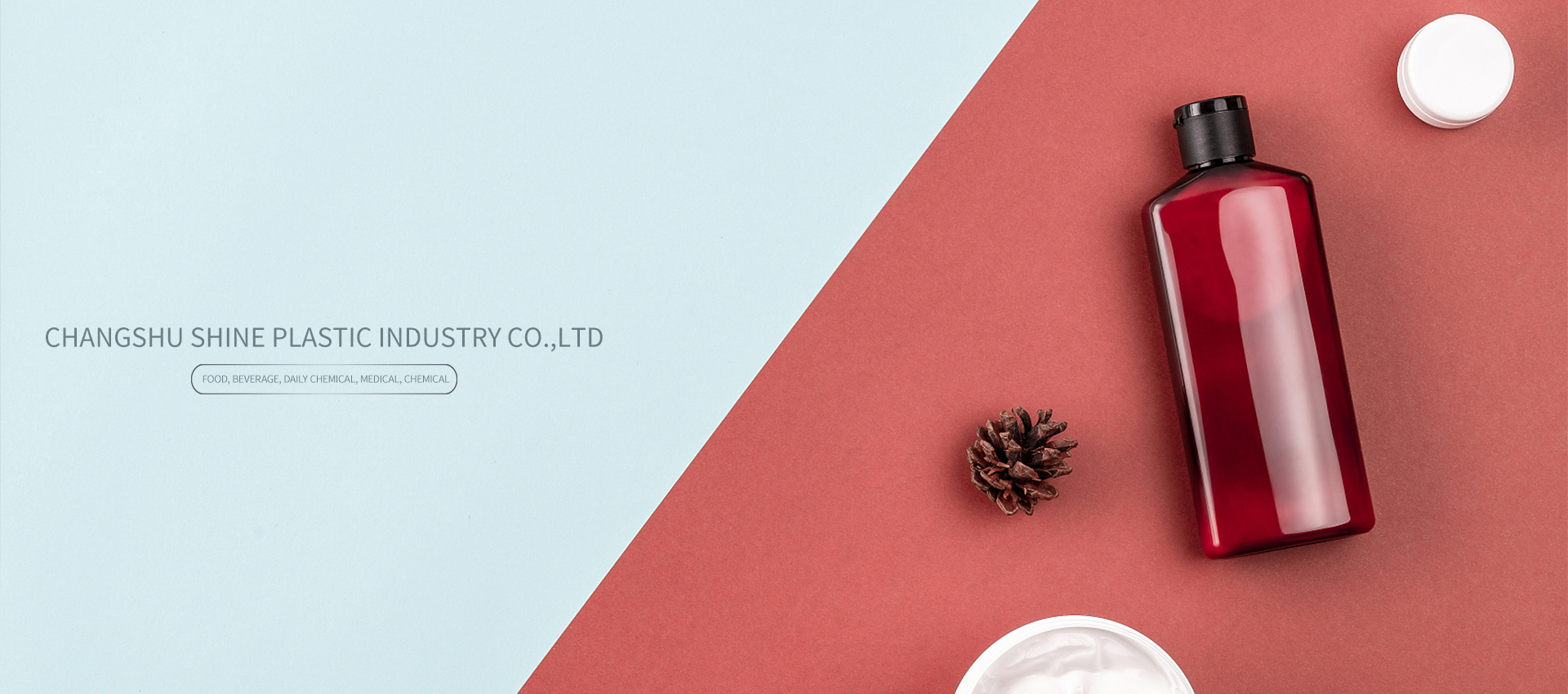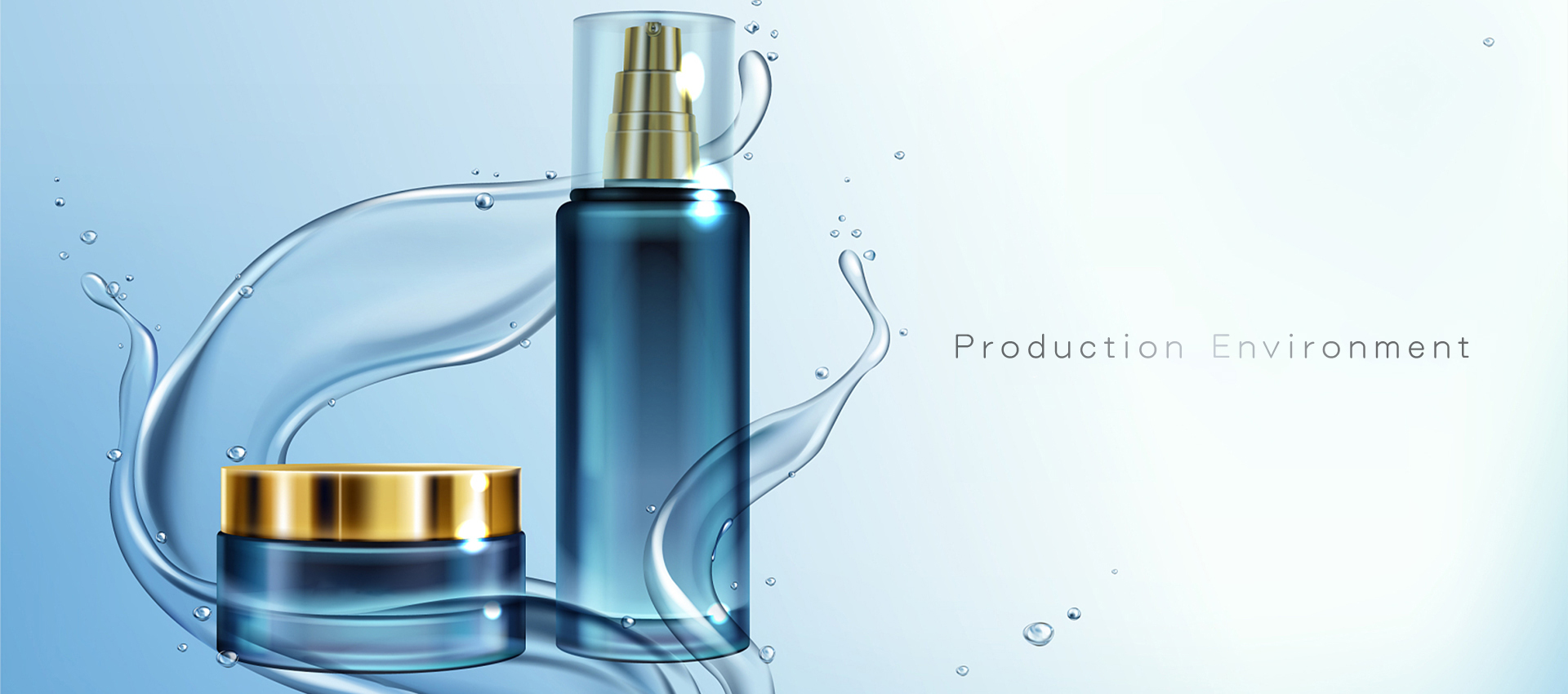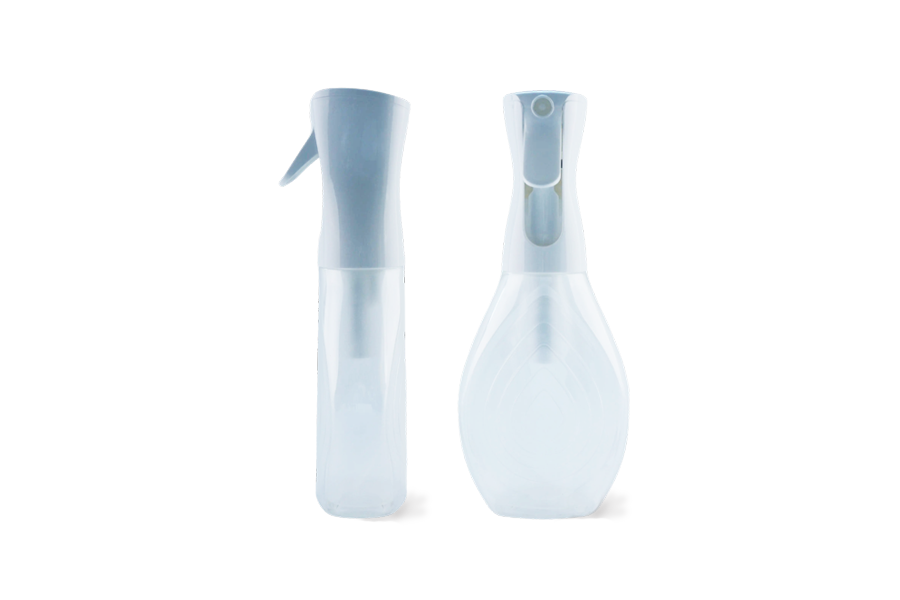
You Are Here:Home > News Center
> Industry Dynamics
News navigation
Recommended news
In which industries are aerosol cans used
source:www.twistystubes.com | Release time:2025-10-10
Aerosol can is a kind of packaging container that uses sealed pressure containers (usually metal or plastic materials) to spray the contents in the form of fog, foam or liquid through internal compressed gas (or liquefied gas propellant). With the advantages of convenient use, controllable dosage, strong sealing, stable storage, etc., it is widely used in many industries. The core application scenarios can be divided into two categories: "civil consumption" and "industrial/professional fields", as follows:
1、 Civilian consumption field: close to daily life, high-frequency use
The aerosol can products in the civilian field are designed with the core goals of "convenience, safety, and user experience", covering scenarios such as personal care, home cleaning, and daily protection, and are the most familiar application directions for the public.
1. Personal care and beauty industry
This industry is one of the core application scenarios for aerosol cans, with products emphasizing "delicate atomization, mild formula, and portability". Common categories include:
Skin care: moisturizing spray (such as water replenishing spray containing hyaluronic acid and ceramide), makeup setting spray (fix makeup after beauty to avoid makeup removal), sunscreen spray (no need to apply, suitable for hair, ear and other details of sunscreen);
Hairdressing: hair gel (strong styling/natural styling, for fixed hairstyle), mousse (foam like, for increasing hair puffiness), hair nutrition spray (containing essential oil ingredients, to improve hair rashness);
Body care: antiperspirant spray (to prevent sweat secretion and reduce odor), body moisturizing spray (containing glycerin and vitamin E to alleviate skin dryness), hair removal spray (to dissolve hair and replace shaver).
2. Home cleaning and daily chemical industry
In response to the demand for "efficient stain removal, residue free, and easy operation" in household cleaning, aerosol can products can be correctly applied to stained areas. Common categories include:
Kitchen cleaning: oil stain cleaner (such as range hood cleaner, stove spray, which can dissolve heavy oil stains without repeated wiping), tableware foam cleaner (foam has strong adhesion, covering the gap between tableware);
Home care: furniture maintenance spray (such as wood furniture polish, leather sofa cleaner), glass cleaner (evenly covered after atomization to reduce water marks), acarid spray (including acarid ingredients, sprayed on mattresses and sofas to prevent acarid breeding);
Environment cleaning: air freshener (such as fragrance spray to improve indoor odor), mold proof spray (used in wet areas such as bathrooms and wardrobes to prevent mold).
3. Daily protection and disinfection and sterilization industry
Focusing on "quick onset, safe use, and portable protection", especially with the increasing demand for health protection, the application scenarios are further expanded:
Disinfection and sterilization: spray of household disinfectant (such as disinfection spray containing hypochlorite and alcohol, used for high-frequency contact parts such as door handles and desks), spray of mosquito repellent (including DEET, Picardine, and outdoor mosquito bite prevention);
Emergency protection: anti fog spray (sprayed on glasses and car glass to avoid fogging), cooling spray (sprayed on clothes and seats in summer to quickly cool down through water evaporation), anti wolf spray (containing capsaicin, used for personal safety protection, and some products need to be used in compliance).
4. Food industry
Food grade aerosol cans must comply with food grade safety standards (such as inner wall coatings and propellant selection), with the core advantages of "freshness preservation, convenient access, and controlled dosage". Common categories include:
Cooking aids: edible oil spray (such as olive oil, sunflower seed oil spray, evenly spray on the pot or food materials to reduce oil consumption), baking and demoulding spray (spray on the baking pan to prevent cake adhesion);
Ready to eat/seasoning: spray cream (used for cake and coffee top decoration, press to release, foam is delicate), seasoning spray (such as salt spray, black pepper spray, correctly control the amount of seasoning, and avoid shaking hands).
2、 Industrial and professional fields: Focus on efficient operations to meet specific functional requirements
Aerosol can products in industrial/professional fields are centered around "strong functionality, weather resistance, and adaptability to special scenarios", and are often used in professional scenarios such as mechanical maintenance, automotive maintenance, medical assistance, and agricultural production. They have higher requirements for the formulation of the contents and the pressure resistance of the can body.
1. Automotive industry (maintenance and repair)
In response to the needs of automotive parts lubrication, cleaning, and rust prevention, aerosol cans can penetrate into narrow gaps such as engines and chassis to achieve correct operation. Common categories include:
Maintenance: engine cleaning agent (such as throttle cleaner and fuel injection nozzle cleaner to remove carbon deposits and improve power), lubricating spray (such as door hinge lubricant and window guide rail lubricant to reduce abnormal noise), anti rust spray (sprayed on chassis and hub to prevent rain corrosion);
Emergency maintenance: tire repair spray (after the tire is punctured, it is sprayed into the tire for quick sealing and temporary endurance), glass anti fog agent (sprayed on the inside of the car glass in winter to avoid fog affecting the vision), and paint repair spray (small scratches are temporarily covered to prevent rust).
2. Mechanical and industrial maintenance industry
Used for efficient lubrication, rust removal, and cleaning of factory and mechanical equipment, ensuring long-term stable operation of the equipment. Common categories include:
Lubrication: high-temperature lubrication spray (applicable to high-temperature parts such as motors and bearings, with a temperature resistance of more than 300 ℃), dry lubrication spray (used for gears and sliding rails, to prevent oil stains from adsorbing dust);
Derusting and loosening: derusting agent spray (penetrate the rust gap to loosen the rusted bolt), bolt loosening agent (dissolve the oxide layer between threads to facilitate disassembly);
Cleaning and protection: cleaning agents for electrical equipment (such as circuit board cleaner, which has strong insulation, can be cleaned with electricity to remove dust and oil stains), spray for metal surface protection (forming a protective film to prevent oxidation).
3. Medical and health industry
Medical aerosol cans must comply with pharmaceutical grade standards (such as GMP certification) and are primarily used for "correct drug delivery and local treatment". Common categories include:
Respiratory disease treatment: inhaled aerosol relieves spray, inhales through the mouth, and the drug reaches the lungs directly, with quick effect);
Local treatment: spray for skin administration (such as antibiotic spray, scald repair spray, to avoid infection caused by contact with the wound when applying), oral spray (such as spray for oral ulcer, and spray for throat relief, directly acting on the focus);
Medical auxiliary: medical disinfection spray (such as surgical instrument disinfection spray containing hydrogen peroxide), wound care spray (forming a protective film to isolate bacteria).
4. Agriculture and Horticulture Industry
In response to the demand for "correct application of pesticides, reduction of pesticide waste, and protection of crops", aerosol cans can achieve small-scale and targeted spraying, suitable for home gardening or small-scale planting. Common categories include:
Plant protection: insecticide spray (such as potted insecticides for household use to control aphids and red spiders), fungicide spray (to prevent plant mold disease and leaf spot disease), and herbicide spray (to remove weeds in a small range to avoid affecting crops);
Plant maintenance: foliar fertilizer spray (containing nitrogen, phosphorus, potassium or trace elements, which are absorbed by leaves to supplement nutrients), plant growth regulator spray (such as flower stimulating spray, dwarfing agent, regulating plant growth).
5. Other professional fields
Paint and repair industry: self painting (such as metal paint and plastic paint, used for small area repair of furniture, toys and cars, with various colors and convenient operation), wall repair spray (to fill small gaps and quickly cover defects);
Fire fighting and emergency industry: small fire extinguishers (such as aerosol fire extinguishers, water-based spray fire extinguishers, small in size, suitable for home and vehicle emergency fire fighting);
Mold and electronics industry: release agent spray (used for plastic mold and rubber mold to prevent adhesion of finished products), electronic component cleaner (such as precision instrument dust removal spray, high pressure air flow to remove dust without damaging components).
3、 Core advantages of aerosol can application (cross industry commonality)
Whether in civilian or industrial fields, the widespread application of aerosol cans relies on their unique characteristics:
Controllable dosage: The press type valve can correctly control the spraying amount (such as spraying 0.5-1mL per press), avoiding waste or insufficient dosage;
Strong sealing: A completely sealed tank can isolate air and moisture, extending the shelf life of its contents (such as food and medicine, which can be stored for 1-3 years);
Convenient use: it can be operated with one hand without additional tools, especially suitable for outdoor and emergency scenarios (such as vehicle mounted tire repair spray, outdoor mosquito repellent spray);
Uniform coverage: the atomized contents can evenly cover the target surface (such as sunscreen spray and detergent) to improve the effect;
Safe and stable: Modern aerosol cans often use environmentally friendly propellants (such as compressed air, carbon dioxide, replacing traditional fluorocarbons), and the can body has undergone pressure testing (can withstand pressures of 0.8-1.5MPa), making it safe to use.
1、 Civilian consumption field: close to daily life, high-frequency use
The aerosol can products in the civilian field are designed with the core goals of "convenience, safety, and user experience", covering scenarios such as personal care, home cleaning, and daily protection, and are the most familiar application directions for the public.
1. Personal care and beauty industry
This industry is one of the core application scenarios for aerosol cans, with products emphasizing "delicate atomization, mild formula, and portability". Common categories include:
Skin care: moisturizing spray (such as water replenishing spray containing hyaluronic acid and ceramide), makeup setting spray (fix makeup after beauty to avoid makeup removal), sunscreen spray (no need to apply, suitable for hair, ear and other details of sunscreen);
Hairdressing: hair gel (strong styling/natural styling, for fixed hairstyle), mousse (foam like, for increasing hair puffiness), hair nutrition spray (containing essential oil ingredients, to improve hair rashness);
Body care: antiperspirant spray (to prevent sweat secretion and reduce odor), body moisturizing spray (containing glycerin and vitamin E to alleviate skin dryness), hair removal spray (to dissolve hair and replace shaver).
2. Home cleaning and daily chemical industry
In response to the demand for "efficient stain removal, residue free, and easy operation" in household cleaning, aerosol can products can be correctly applied to stained areas. Common categories include:
Kitchen cleaning: oil stain cleaner (such as range hood cleaner, stove spray, which can dissolve heavy oil stains without repeated wiping), tableware foam cleaner (foam has strong adhesion, covering the gap between tableware);
Home care: furniture maintenance spray (such as wood furniture polish, leather sofa cleaner), glass cleaner (evenly covered after atomization to reduce water marks), acarid spray (including acarid ingredients, sprayed on mattresses and sofas to prevent acarid breeding);
Environment cleaning: air freshener (such as fragrance spray to improve indoor odor), mold proof spray (used in wet areas such as bathrooms and wardrobes to prevent mold).
3. Daily protection and disinfection and sterilization industry
Focusing on "quick onset, safe use, and portable protection", especially with the increasing demand for health protection, the application scenarios are further expanded:
Disinfection and sterilization: spray of household disinfectant (such as disinfection spray containing hypochlorite and alcohol, used for high-frequency contact parts such as door handles and desks), spray of mosquito repellent (including DEET, Picardine, and outdoor mosquito bite prevention);
Emergency protection: anti fog spray (sprayed on glasses and car glass to avoid fogging), cooling spray (sprayed on clothes and seats in summer to quickly cool down through water evaporation), anti wolf spray (containing capsaicin, used for personal safety protection, and some products need to be used in compliance).
4. Food industry
Food grade aerosol cans must comply with food grade safety standards (such as inner wall coatings and propellant selection), with the core advantages of "freshness preservation, convenient access, and controlled dosage". Common categories include:
Cooking aids: edible oil spray (such as olive oil, sunflower seed oil spray, evenly spray on the pot or food materials to reduce oil consumption), baking and demoulding spray (spray on the baking pan to prevent cake adhesion);
Ready to eat/seasoning: spray cream (used for cake and coffee top decoration, press to release, foam is delicate), seasoning spray (such as salt spray, black pepper spray, correctly control the amount of seasoning, and avoid shaking hands).
2、 Industrial and professional fields: Focus on efficient operations to meet specific functional requirements
Aerosol can products in industrial/professional fields are centered around "strong functionality, weather resistance, and adaptability to special scenarios", and are often used in professional scenarios such as mechanical maintenance, automotive maintenance, medical assistance, and agricultural production. They have higher requirements for the formulation of the contents and the pressure resistance of the can body.
1. Automotive industry (maintenance and repair)
In response to the needs of automotive parts lubrication, cleaning, and rust prevention, aerosol cans can penetrate into narrow gaps such as engines and chassis to achieve correct operation. Common categories include:
Maintenance: engine cleaning agent (such as throttle cleaner and fuel injection nozzle cleaner to remove carbon deposits and improve power), lubricating spray (such as door hinge lubricant and window guide rail lubricant to reduce abnormal noise), anti rust spray (sprayed on chassis and hub to prevent rain corrosion);
Emergency maintenance: tire repair spray (after the tire is punctured, it is sprayed into the tire for quick sealing and temporary endurance), glass anti fog agent (sprayed on the inside of the car glass in winter to avoid fog affecting the vision), and paint repair spray (small scratches are temporarily covered to prevent rust).
2. Mechanical and industrial maintenance industry
Used for efficient lubrication, rust removal, and cleaning of factory and mechanical equipment, ensuring long-term stable operation of the equipment. Common categories include:
Lubrication: high-temperature lubrication spray (applicable to high-temperature parts such as motors and bearings, with a temperature resistance of more than 300 ℃), dry lubrication spray (used for gears and sliding rails, to prevent oil stains from adsorbing dust);
Derusting and loosening: derusting agent spray (penetrate the rust gap to loosen the rusted bolt), bolt loosening agent (dissolve the oxide layer between threads to facilitate disassembly);
Cleaning and protection: cleaning agents for electrical equipment (such as circuit board cleaner, which has strong insulation, can be cleaned with electricity to remove dust and oil stains), spray for metal surface protection (forming a protective film to prevent oxidation).
3. Medical and health industry
Medical aerosol cans must comply with pharmaceutical grade standards (such as GMP certification) and are primarily used for "correct drug delivery and local treatment". Common categories include:
Respiratory disease treatment: inhaled aerosol relieves spray, inhales through the mouth, and the drug reaches the lungs directly, with quick effect);
Local treatment: spray for skin administration (such as antibiotic spray, scald repair spray, to avoid infection caused by contact with the wound when applying), oral spray (such as spray for oral ulcer, and spray for throat relief, directly acting on the focus);
Medical auxiliary: medical disinfection spray (such as surgical instrument disinfection spray containing hydrogen peroxide), wound care spray (forming a protective film to isolate bacteria).
4. Agriculture and Horticulture Industry
In response to the demand for "correct application of pesticides, reduction of pesticide waste, and protection of crops", aerosol cans can achieve small-scale and targeted spraying, suitable for home gardening or small-scale planting. Common categories include:
Plant protection: insecticide spray (such as potted insecticides for household use to control aphids and red spiders), fungicide spray (to prevent plant mold disease and leaf spot disease), and herbicide spray (to remove weeds in a small range to avoid affecting crops);
Plant maintenance: foliar fertilizer spray (containing nitrogen, phosphorus, potassium or trace elements, which are absorbed by leaves to supplement nutrients), plant growth regulator spray (such as flower stimulating spray, dwarfing agent, regulating plant growth).
5. Other professional fields
Paint and repair industry: self painting (such as metal paint and plastic paint, used for small area repair of furniture, toys and cars, with various colors and convenient operation), wall repair spray (to fill small gaps and quickly cover defects);
Fire fighting and emergency industry: small fire extinguishers (such as aerosol fire extinguishers, water-based spray fire extinguishers, small in size, suitable for home and vehicle emergency fire fighting);
Mold and electronics industry: release agent spray (used for plastic mold and rubber mold to prevent adhesion of finished products), electronic component cleaner (such as precision instrument dust removal spray, high pressure air flow to remove dust without damaging components).
3、 Core advantages of aerosol can application (cross industry commonality)
Whether in civilian or industrial fields, the widespread application of aerosol cans relies on their unique characteristics:
Controllable dosage: The press type valve can correctly control the spraying amount (such as spraying 0.5-1mL per press), avoiding waste or insufficient dosage;
Strong sealing: A completely sealed tank can isolate air and moisture, extending the shelf life of its contents (such as food and medicine, which can be stored for 1-3 years);
Convenient use: it can be operated with one hand without additional tools, especially suitable for outdoor and emergency scenarios (such as vehicle mounted tire repair spray, outdoor mosquito repellent spray);
Uniform coverage: the atomized contents can evenly cover the target surface (such as sunscreen spray and detergent) to improve the effect;
Safe and stable: Modern aerosol cans often use environmentally friendly propellants (such as compressed air, carbon dioxide, replacing traditional fluorocarbons), and the can body has undergone pressure testing (can withstand pressures of 0.8-1.5MPa), making it safe to use.

- CHANGSHU SHINE PLASTIC INDUSTRY CO.,LTD Phone:0512-52557888 Mailbox:shenshisuye@163.com Company address:No. 20 Guangyuan Road, South Development Zone, Zhitang Town, Changshu City, Jiangsu Province
-
 Scan your phone
Scan your phone

 wechat number:
wechat number:





 home
home
 WeChat
WeChat
 telephone
telephone